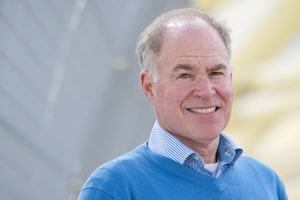In a video released Friday, Catherine, Princess of Wales, says she is undergoing preventative chemotherapy after tests following major abdominal surgery in January revealed she has cancer.
The Princess of Wales has revealed she is undergoing chemotherapy treatment for cancer and that her abdominal surgery in January was to remove what doctors believed was a non-cancerous condition.
Catherine, 42, said in a video message on Friday that the surgery was successful, but tests after the operation found cancer and her doctors advised her to do a course of preventative chemotherapy.
“I am now in the early stages of that treatment,” Catherine said. “This of course came as a huge shock, and William and I have been doing everything we can to process and manage this privately for the sake of our young family.”
Her treatment was disclosed only a couple of months after King Charles said he had begun treatment for cancer. Royal officials have not said what type of cancer either Catherine or the King are being treated for.
A timeline of the Princess of Wales’s abdominal surgery, photo controversy and cancer treatment
On Friday, a Kensington Palace spokesperson said the princess began her course of chemotherapy in late February and that she was “on a recovery pathway.” The palace announced on Jan. 17 that she’d had surgery and she left the hospital on Jan. 29, the same day King Charles was discharged.
Catherine had been admitted to the London Clinic in January for what royal officials said at the time was abdominal surgery. The palace released no further details other than to say that she was expected to resume royal duties after Easter.
The lack of information set off a frenzy of speculation, which was fed further by a photograph officials released earlier this month of Catherine and her three children. The photo was taken by the Prince of Wales but caused an outcry after some of the world’s largest news agencies recalled it over allegations it had been manipulated. Catherine later acknowledged she altered the image.
On Friday, she said it had taken time to come to terms with the cancer diagnosis and tell her children. “But, most importantly, it has taken us time to explain everything to George, Charlotte and Louis in a way that is appropriate for them, and to reassure them that I am going to be okay.”
She also asked for privacy as she continues treatment. A spokesperson for Buckingham Palace said King Charles praised Catherine for her courage and said he was in close contact with her through the past weeks.
Prime Minister Justin Trudeau wished the Princess a swift recovery. “My thoughts are with the Princess of Wales, her children, and the entire Royal Family following the news of her cancer so courageously shared,” Mr. Trudeau said on X. “On behalf of Canadians, I’m sending my support as she undergoes treatment.”
British Prime Minister Rishi Sunak said the Princess had “the love and support of the whole country as she continues her recovery.”
He also criticized the recent speculation about her health. “In recent weeks she has been subjected to intense scrutiny and has been unfairly treated by certain sections of the media around the world and on social media,” Mr. Sunak said. “When it comes to matters of health, like everyone else, she must be afforded the privacy to focus on her treatment and be with her loving family.”
The Duke and Duchess of Sussex also offered their best wishes to Catherine. “We wish health and healing for Kate and the family, and hope they are able to do so privately and in peace,” Harry and Meghan said in a statement.
Preventative, or adjuvant, chemotherapy typically occurs after an operation to destroy any circulating cancer cells, said Dr. Shivan Sivakumar, an associate professor in oncology at the University of Birmingham. He added that adjuvant regimes are usually for three to six months.
“There is an epidemic currently of young people getting cancer – under 50s,” Dr. Sivakumar said. “It is unknown the cause of this, but we are seeing more patients getting abdominal cancers.”
Andrew Beggs, a senior clinical fellow and consultant in colorectal surgery at the University of Birmingham, said age generally has no effect on the success rate of chemotherapy. However, young people “better tolerate higher doses of chemotherapy and so can be given stronger regimens that are more likely to kill any left over cells.”
Michelle Mitchell, Cancer Research UK’s chief executive, said high-profile cases such as Catherine’s and the King’s can help increase awareness about early detection and going to their doctor when they spot something that is abnormal.
“Nearly one in two of us will develop cancer during our lifetimes,” she said, “but many more are affected when someone they love is diagnosed with cancer.”
The Princess’s video was recorded by BBC Studios, the production arm of the broadcaster, on Wednesday in Windsor. The BBC’s royal correspondent, Sarah Campbell, said the BBC had no editorial involvement in the message, and did not make any edits to the video.
 Paul Waldie
Paul Waldie